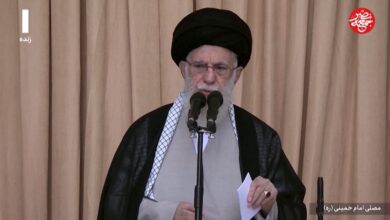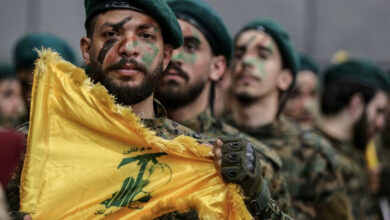Egyptian authorities rejected a request by international activists Monday to stage a scheduled march to the Gaza Strip through the Egyptian border town of Rafah to mark the one-year anniversary of Israel’s three-week-long assault on the coastal enclave during which more than 1400 Palestinians were killed.
"Some international organizations have requested permission for a solidarity march–the ‘Gaza Freedom March’– into the Gaza Strip," the Egyptian Foreign Ministry declared in a statement. "Egypt finds it difficult to cooperate with this march in light of the sensitive situation in the Gaza Strip."
For almost three years, the strip has been subject to a crushing, internationally-sanctioned blockade by Israel and Egypt that has prevented the entry of desperately needed supplies of food and medicine into the territory.
The ministry statement went on to warn that "any attempts to violate the law or public order by any group, whether local or foreign, on Egyptian soil will be dealt with in conformity with the law."
Over 1,000 international delegates from 42 countries have signed up to join the Gaza Freedom March, which had been scheduled to enter the Gaza Strip via Egypt in the last week of December. March participants also call for an end to the Egyptian-Israeli siege that has brought the territory’s roughly 1.5 million inhabitants to the brink of humanitarian catastrophe.
The Foreign Ministry statement attributed its decision to ban the march to “attempts by the representatives of some organizations to avoid submitting the proper official documents.” The statement did not, however, clarify whether these "official documents" were related to the issuance of travel visas or to permits issued by the Interior Ministry to hold the march.
Some organizers see Egypt’s decision to ban the event as “unnecessary.”
“It’s true that some logistical problems have emerged lately, as no one has ever taken a group this size into Gaza before–but the decision is unnecessary,” said US peace activist and march coordinator Ann Wright.
Some march participants have also complained of Egypt’s denial of entry visas to certain European activists. Al-Masry Al-Youm could not, however, independently verify these claims.
According to CODEPINK, a US-based rights group, march organizers had set November 30 as a cut-off date for registration in order to give Egyptian officials sufficient time to clear would-be participants for entry into the strip.
Egypt often acts sensitively–and, at times, aggressively–to international solidarity campaigns with the Gaza Strip, which has been ruled by Palestinian resistance movement Hamas since 2007.
In October, "the Miles of Smiles" solidarity group–bearing 220 wheel-chairs for Palestinians who were disabled during Israel’s assault–was denied entry into the territory for five weeks on the grounds that it had not obtained official authorization.
In February, authorities detained German-Egyptian peace activist Philip Rizk for four days for attempting to cross into the Gaza Strip “illegally.” In the same month, Magdy Hussein, head of Egypt’s frozen Islamist Labor Party, was sentenced to two years in jail by an Egyptian military court for illegally crossing into the territory during the assault.
On the domestic front, meanwhile, the Egyptian government has been cracking down on Gaza solidarity protests, fearing that these might bolster the popularity of its foremost political rival, the Muslim Brotherhood opposition movement, which has historical and ideological ties with Hamas.




